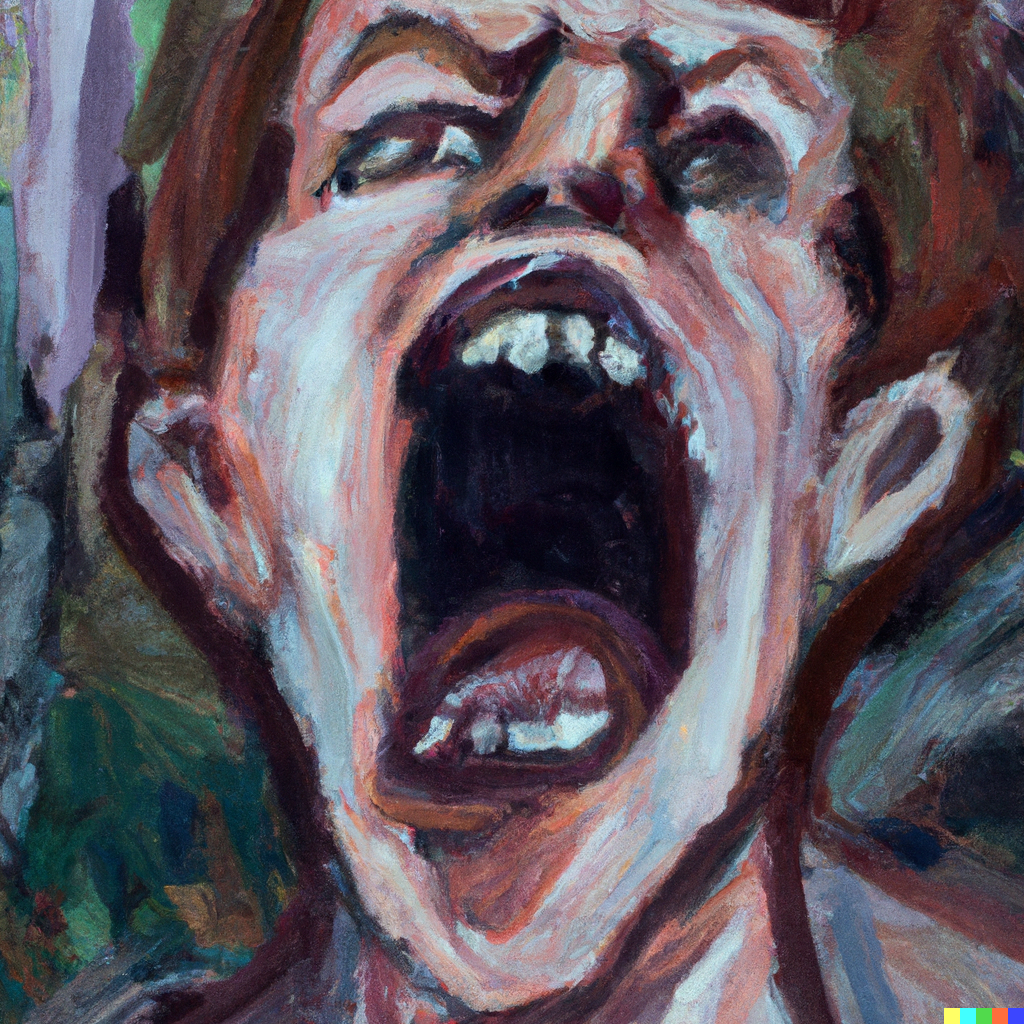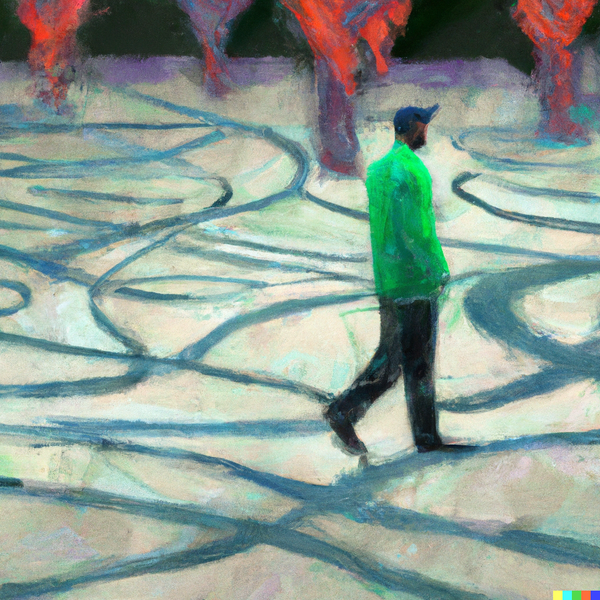naked (1993)

Mike Leigh’s Naked (1993) captures a pretentious absurdity in the lives of several British characters living in the “big shitty” of London. The film begins with a rape scene, whose perpetrator and the film’s main character, Johnny, flees after being threatened by his victim’s announcement that her “Bernard” would hear of his crime. Hurriedly leaving Manchester in a stolen car, Johnny sets off to London, an act that may be deemed as both escapist yet accountable. Escapist, because he avoids the negative consequences of his actions but nonetheless accountable because he takes on responsibility for his safety. Clearly, nothing about Johnny’s life is simplistic unless viewed from a parochial perspective, one that overlooks the absence of a transcendent morality in his way of life – except an acceptance of the minuteness of humans and the evilness of God. In London, the film follows Johnny’s encounters with his ex-girlfriend Louise and her roommate Sophie, a homeless couple composed of Archie and Maggie, a security guard named Brian, and a handful of others. Through his dialogues and bipolar-esque behaviour, Johnny unravels the senselessness of human actions, both in their day-to-day obsessions with the future and the grand projects they undertake, like work. I argue that it is the critical maturity of Johnny’s scattered, often ill-situated, rants and questions to his interlocutors that we observe his encouragement for them to live more authentically. That is, by not avoiding the angst they may feel if they undress humanity and come to terms with the arbitrariness of the ideas, people, things, and projects that they engage with.
Johnny’s mini-sermons, and his life of open rebellion to having a home, a job, stable relationships, and non-confrontational conversations with strangers, align with the views of existentialism. Sartre (2007) defines existentialism as “a doctrine that makes human life possible and also affirms that every truth and every action imply an environment and a human subjectivity” (18). This subjectivity arises from the notion that there is no such thing as inherent human nature that precedes existence. Instead, as I will note from Johnny’s dialogues, humans are too insignificant for a creator to have designed them with a specific striving goal in mind. He says, “You can’t make an omelette without cracking a few eggs, and humanity is just a cracked egg. And the omelette… stinks” (59:06). The reason this omelette stinks, I propose, is that there is no aroma of meaning. We crave for a God-given predetermined purpose yet the world has none to offer us, so we either find this freeing and create our own meaning, as the existentialists propose, or we despair, as the nihilists often do. A nihilist, as defined by Nietzsche, is “a man [or woman] who judges of the world as it is that it ought not to be, and of the world as it ought to be that it does not exist” (1). Given Johnny’s critical take on what people say or do, one might argue that he is a nihilist; indeed, his rape streak is enough evidence for an obvious renunciation of morality and religion. Though he claims to believe in God, Johnny’s actions seem to be guided by an unrestricted principle, one that lies in secular freedom, a gospel of authenticity, of speaking one’s mind as it is.
An illustration of this is Johnny’s first chat with Sophie, where they talk about her neighbour Susan, her roommate and Johnny’s ex-girlfriend Louise, science and skeletons, Sophie’s sexual appeal to a “mammalian, Mancunian X-Y’ly chromosome” (8:34), them choosing not to share their names with each other, and most crucially, space agencies’ efforts in travelling to the moon. Johnny wonders, “What do they think they can find up there that they won’t find down here?”, he responds to himself, “... they think if they piss high enough, they’re gonna come across the monkey with the beard and the crap ideas?” (8:00). Here, he may be misunderstood as one saying that astronauts are tirelessly searching for a God that does not exist. But that cannot be what he is implying, first, because he clearly refers to God’s existence in multiple other scenes and in one, he clearly states, “Of course, I believe in God” (57:47). Second, it is because he characterizes God as the, not a, monkey with the beard. What I think Johnny is imputing is that there is no point in finding God because he has abandoned humans. Indeed, Sartre writes, “We are left alone and without excuse… condemned to be free” (29). This freedom is certainly damnation because humans are fully responsible for an existence they did not opt for, so unsurprisingly, Johnny has “a few fundamental questions” for God, which one may suppose are around why God decided to “leave [humans] under the grill till doomsday” (10:40). I presume, having written this, that the omelette of humanity’s cracked egg stinks because the creator has left humans for too long on the grill and now the omelette is burning… slowly morphing into charred blobs of organic material. Burning away from work, relationships, hobbies, and everything there is to select between “either wish[ing] to do what other people do… or do[ing] what other people wish [them] to do” (Frankl, 99). This is evidence of what Viktor Frankl refers to as the existential vacuum.
This vacuum occurs when humans’ two sources of direction are stripped from them, (1) animal instincts, which inform the behaviour necessary for survival (2) society and tradition, which instruct them on how to exist in harmony with one another. In the absence of these two, humans are prone to viciously oscillate between hyper-excitement (distress) and hypo-excitement (boredom) (99). When Louise asks Johnny why he left Manchester and poses a rhetorical question “So what happened? Were you bored in Manchester?” (23:11), he goes on a rant about how he is never bored but everyone else is, saying:
That’s the trouble with everyone. You’re all so bored. You’ve had nature explained to you and you’re bored with it. You’ve had the living body explained to you and you’re bored with it. You’ve had the universe explained to you and you’re bored with it. So now you just want cheap thrills and plenty of ‘em and it don’t matter how tawdry or vacuous they are as long as it’s new.
Johnny expresses frustration with how occupied people are with chasing after things that “flash and blip in 40 different colours” (23:34), something that, I suppose, is a criticism of the human tendency to escape the need to come face-to-face with the fact that their existence is arbitrary and so is everything within it. Thus humans find defense mechanisms that prevent them from experiencing angst, an uneasiness from accepting the fundamental human condition of uncertainty and finitude – evidence for the unintentionally in their creation. Indeed, without constructing meaning in the “day to day and from hour to hour” (Frankl, 101), humans are prone to becoming overwhelmed by the insignificance of their presence in the world. An example of this triviality is evident when Johnny describes his fear of the dissonance between the sophistication of the human body and its lack of any significant products, like other machines have (25:37). In doing so, he echoes Nagel’s (1971) analysis of absurdism, a philosophical belief that human beings exist in a meaningless, irrational universe and that any attempt to find meaning or purpose in life is ultimately futile ( 716).
Some scholars have argued that nothing humans do will matter now or in a million years because “[they] are tiny specks in the infinite vastness of the universe” (717). The film depicts this in Johnny’s dizzying movements between the kitchen and the sitting room (from 29:00). Within a span of fewer than thirty seconds, he walks back and forth, switches off the news that Louise was watching, grabs her cigarette from her hands, smokes it in her face, kisses her, walks to the kitchen again, pushes a clinging Sophie away, kisses Sophie, pushes her away again as she attempts to follow him, and then disappears into the streets. This scene induces a sense of discomfort, perhaps elicited by the confrontation with how individual human actions are often selected under the guise of having a “bigger goal” yet when disrobed, they are all a nonsensical series of events; as Nagel summarizes, “all of it is an elaborate journey leading nowhere” (717). Once the “seriousness with which [humans] take [their] lives” (718) is stripped away from the work they do, the degrees they pursue, and the friends they have… they can all be looked at with doubt, culminating in the realization that “what [they] take seriously is something small and insignificant and individual” (720), without a “larger” purpose whose significance cannot be equally questioned. Nevertheless, some may remonstrate that Johnny did something “beyond himself” by helping Archie and Maggie find one another. I think not. When Maggie asks, “Have you ever seen a dead body?”, almost on cue, Johnny says, “Only my own” (38:55). When Maggie asks again about where he plans to sleep, he says, “Wherever I drop”, expressing no care for where he lies because, I suppose, he is just as good as dead. This, I propose, is an indication of his slothfulness, of his refusal to engage in the rat race of constantly planning every single detail of one’s life, under the hopeless expectation that it would make one’s life more valuable, therefore livable. Arguing that Johnny had some big reason to help the couple would be enfeebled by his passivity in their reunion, where he has his back physically turned against them and does not even say goodbye as they leave. In this scene, Johnny’s character is almost a prop, just a figure filling in the space where Maggie and Archie’s assembly occurs.
Speaking of space, when Brian warms up to a cold Johnny sitting outside the building he guards, Johnny is emboldened to ask him about what he is keeping safe in the “postmodernist gas chamber”. Brian tells him, “space” (44:00)... this, I advance, is a metaphor for human life, whose lack of predetermined essence lends it its emptiness. See, human choices are typically motivated by a will to stay alive, to guard the space which they occupy on earth, so by mocking the ridiculousness in Brian’s job, Johnny is showing contempt for the effort humans uphold in covering up the vacuity of their existence. Once Brian lets Johnny into the building, Johnny says, “It’s funny being inside… ‘cause when you are inside, you’re still actually outside… and when you’re outside, you’re inside because you’re always inside your head” (47:54). I lodge that Johnny is referring to the burden of existentialism, whose consequences are being fully responsible for oneself, and consequently, to always be planning, like Nagel establishes, “Human life is full of effort, plans, calculations, success and failure: we pursue our lives with degrees of sloth and energy (719)”. It appears to me that there is an inescapable need for humans to live not only in the present, which for Johnny is a “constant process of coming into being and passing away” (51:17) but also in the past and the future… simultaneously. But this burden is lightened by the realization that “the only thing wrong with the present is that the bastard doesn’t exist” (51:08), yet humans, like Brian, use this non-existent present to judge their pasts and forecast their futures. Johnny criticizes Brian for his “gleeful preoccupation with the future”, which, according to Johnny, does not exist either… for Brian, for Johnny, and for everybody else in humanity (51:43).
What is curious about this scene is that, in the shot, both characters are not fully visible but are rather dark silhouettes. It is as if this is the sort of conversation that people have in secret, that if humanity is to be undressed, then it must be in the dark, where its nakedness may be bearable and the tears humans shed from the consequent despair may be hidden. This despair arises when humans take up ambitions that do not “ depend on [human] will, or on the set of probabilities that enable action” (Sartre, 34). When they busy themselves with questions too big for their small minds to bear or pamper themselves with self-appraisals that are too exceptionalist that they forget what is coming, the apocalypse. Because, again, God did not create humans any differently than he did the dinosaurs and look what happened to them. “That God is a hateful god. Must be” (57:55), Johnny says as he discusses the problem of evil. He then tells Brian, “God doesn’t love you… he despises you”… which in its essence, is killing God as he is known in the Christian tradition as a loving God. In the absence of this loving God, “Mankind”, Johnny says, “is just a component device by which the devil creates itself” (58:57), so humans are just pawns in a bigger chess game between a hateful God and the devil, just a cracked egg in a bigger omelette dish, or even bigger breakfast plate, or even bigger, a breakfast table… an entire kitchen, an entire house.
Works Cited
Frankl, V. Man’s Search for Meaning (excerpts)
Nagel, T. (1971). The absurd. The Journal of Philosophy, 68(20), 716-727.
Nietzsche, F. Beyond Good and Evil (excerpts)
Sartre, J. P. (2007). Existentialism is a Humanism. Yale University Press.





